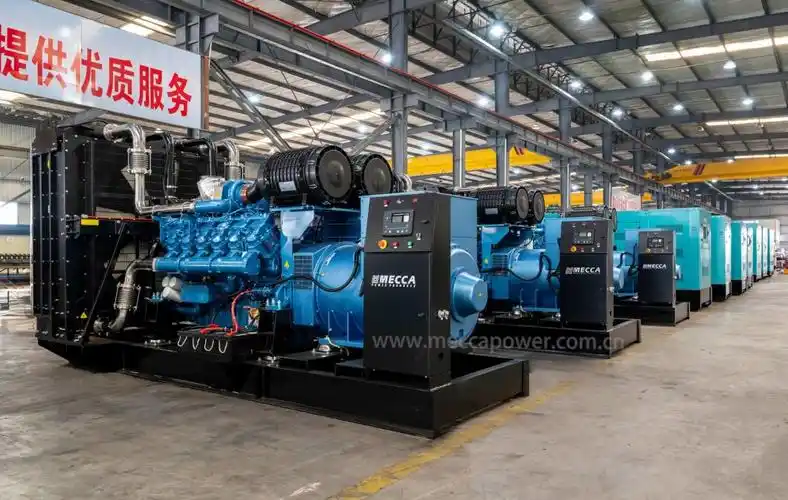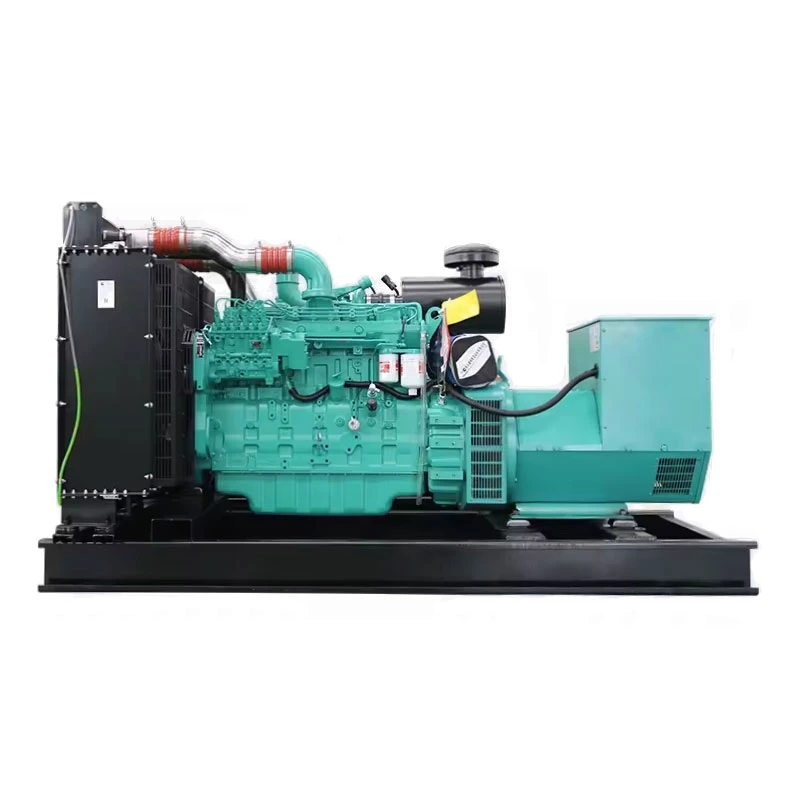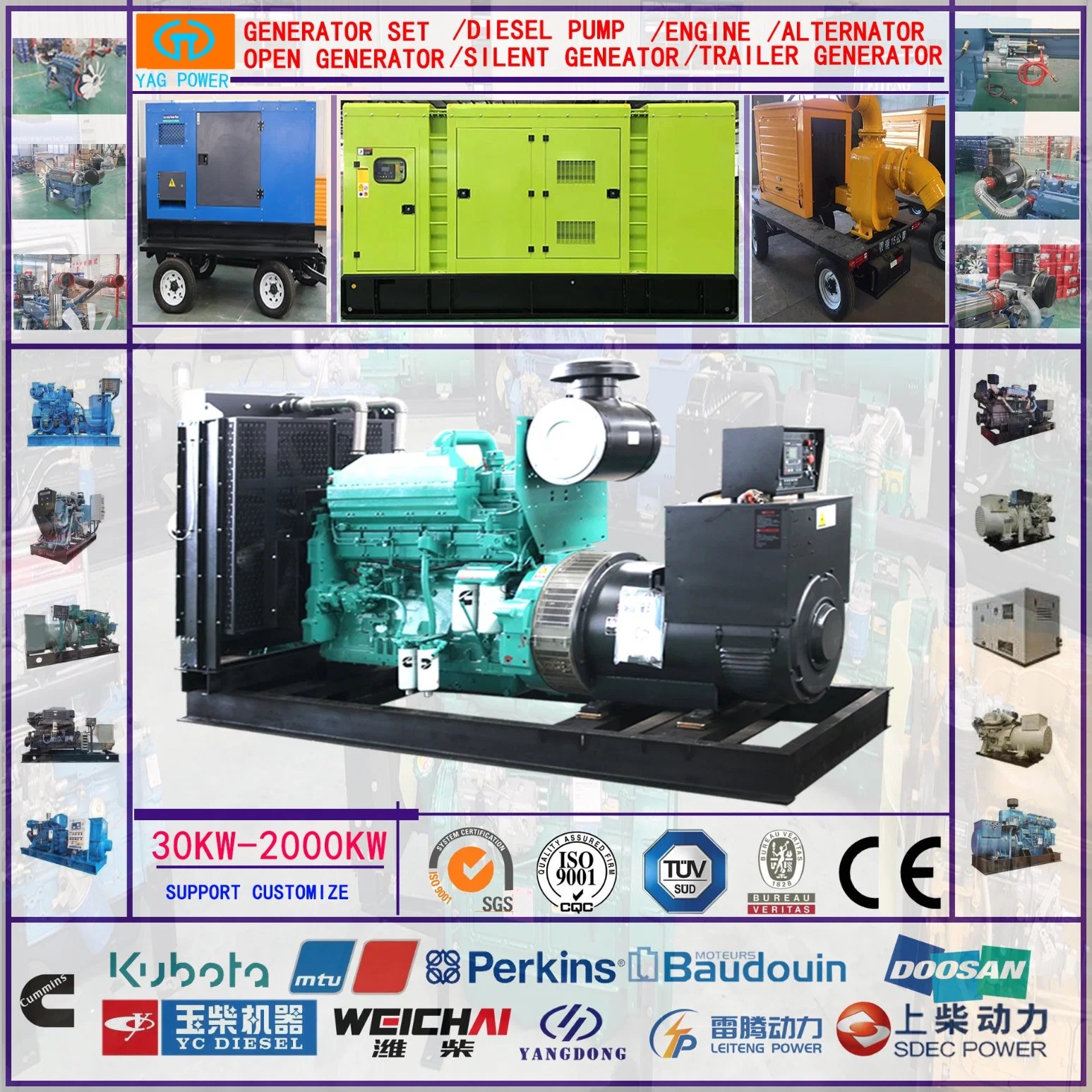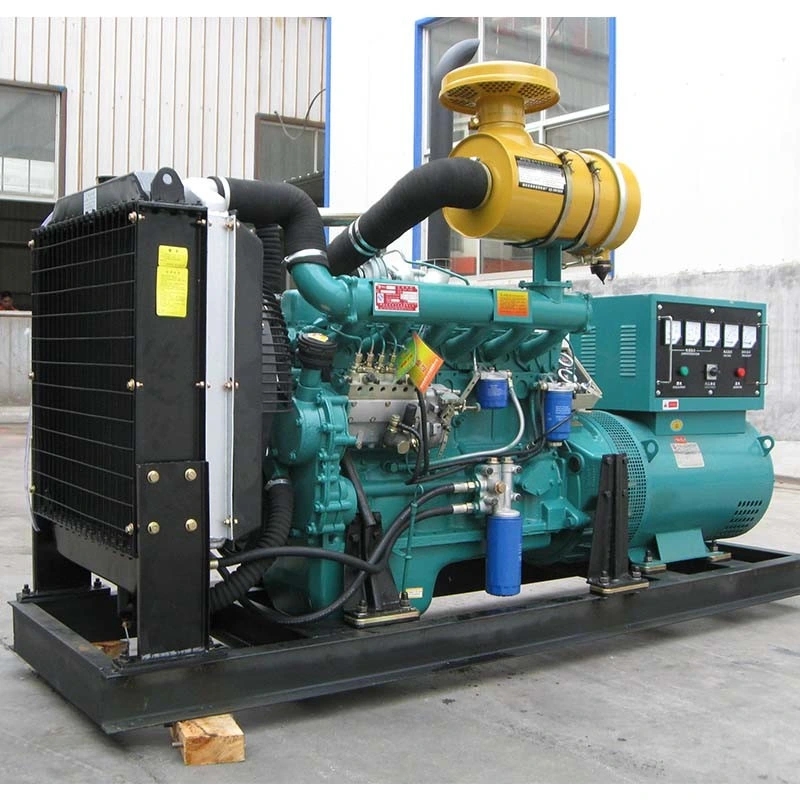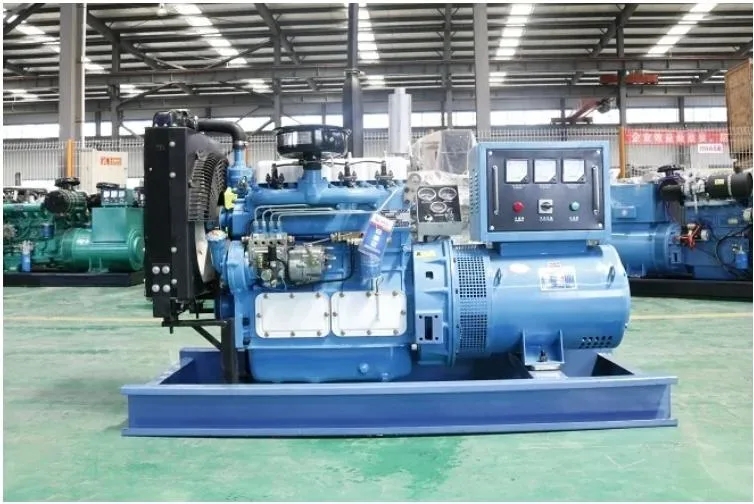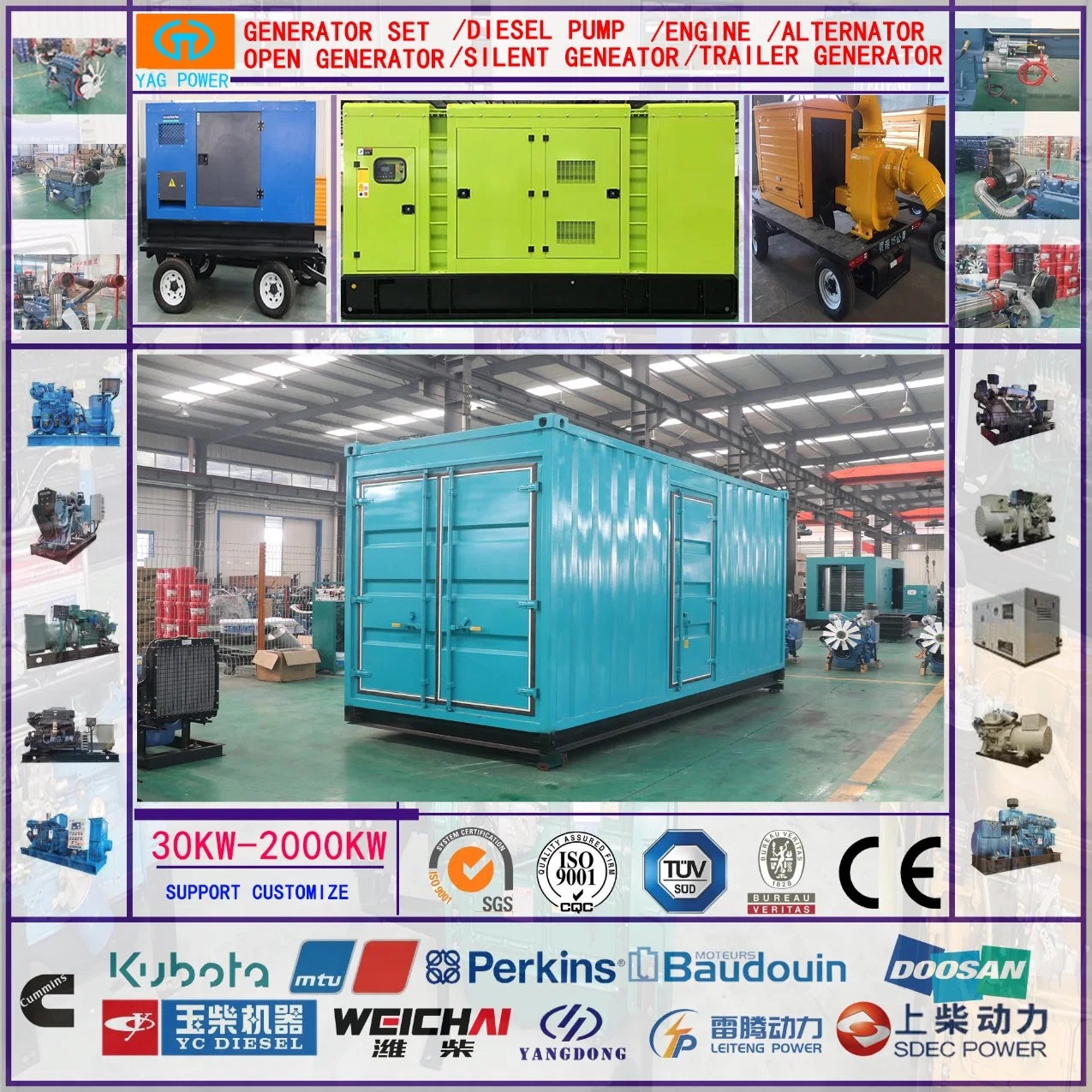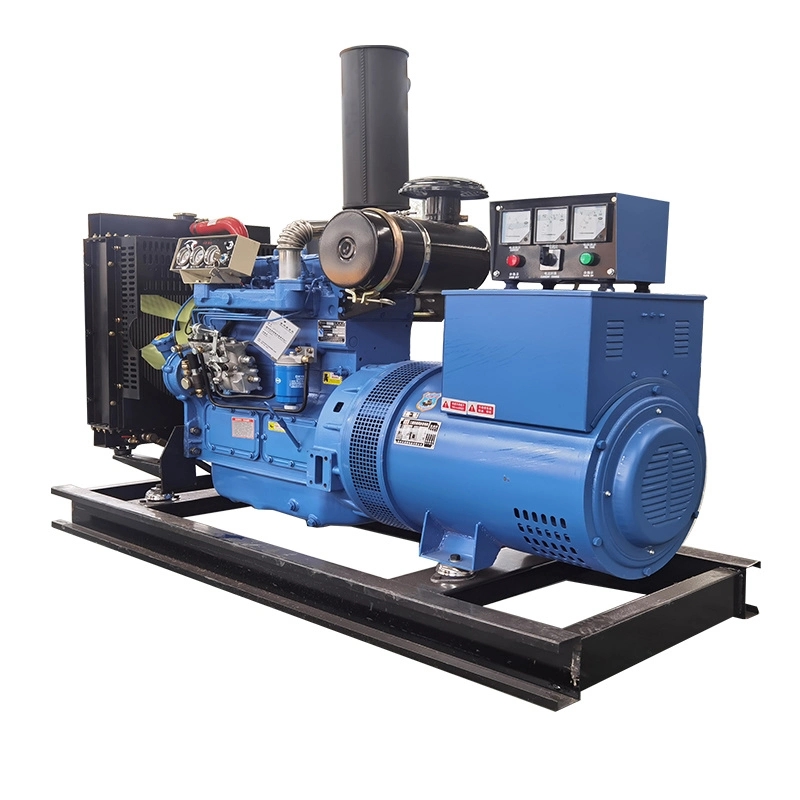Table of Contents
ToggleUnderstanding Diesel Generators
What is a Diesel Generator?
A diesel generator is a powerful machine that converts diesel fuel into electrical energy. It’s like having a mini power plant right at your fingertips! These generators are particularly popular in industries where a reliable power supply is crucial, such as construction, agriculture, and even in hospitals. The heart of the generator is the diesel engine, which drives an alternator to produce electricity.
Imagine you’re in the middle of a construction project, and the power goes out. A diesel generator can kick in and keep your tools running, ensuring that your project stays on schedule. This reliability is one of the main reasons why diesel generators are favored over other types of generators.
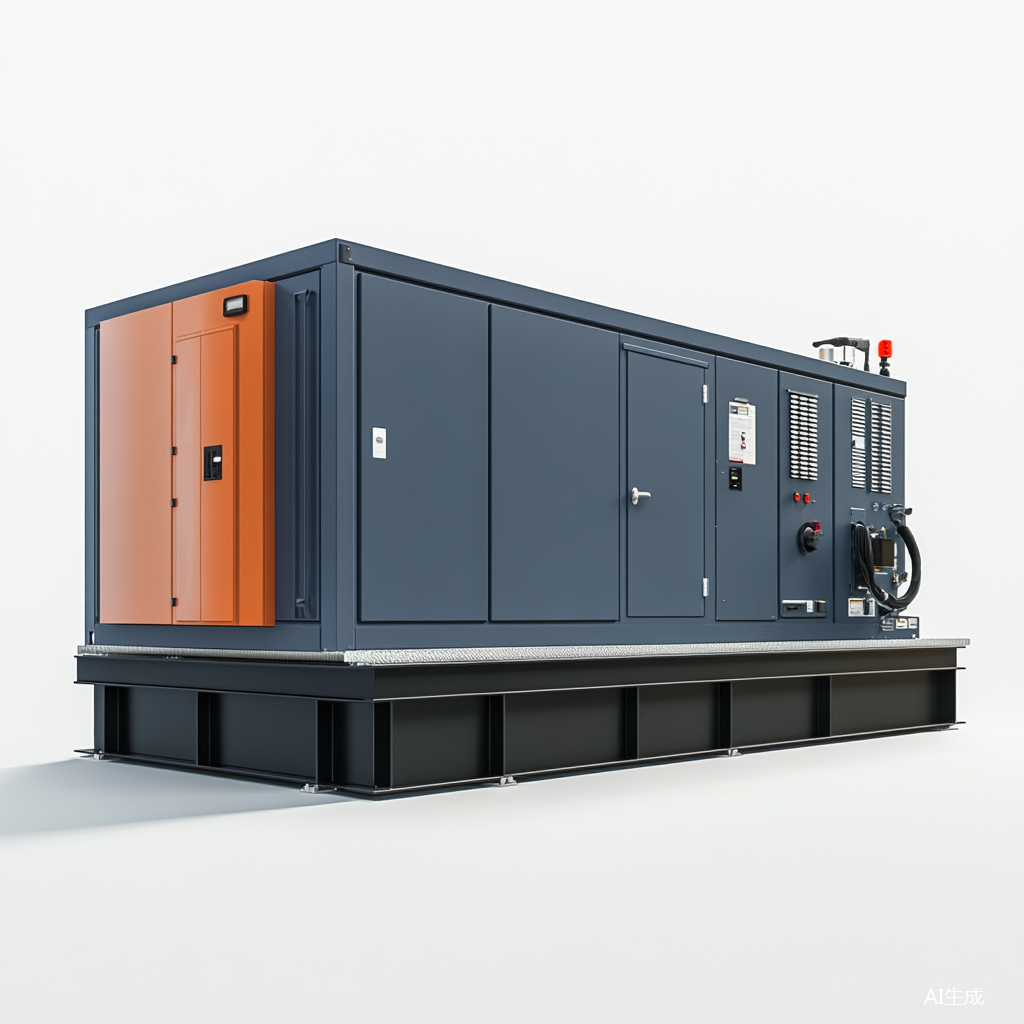
Benefits of Diesel Generators
So, why should you consider a diesel generator? Here are some compelling reasons:
- Durability and Longevity: Diesel engines are built to last. They can run for thousands of hours with proper maintenance, making them a cost-effective choice in the long run. Think of it as investing in a sturdy vehicle that won’t break down after a few trips.
- Fuel Efficiency: Diesel generators are generally more fuel-efficient than gasoline generators. This means you’ll get more power for your money, which is especially important for businesses that rely on consistent energy supply.
- High Torque: Diesel engines produce a high amount of torque, which is beneficial for heavy-duty applications. If you need to power large machinery, a diesel generator is often the best choice.
- Safety: Diesel fuel is less flammable than gasoline, making diesel generators a safer option in many situations. This is particularly important in industrial settings where safety is a top priority.
- Lower Emissions: Modern diesel generators are designed to meet stringent emission standards, making them a more environmentally friendly option compared to older models.
Key Considerations When Choosing a 150kW Diesel Generator
Choosing the right generator isn’t just about picking a brand and model; it involves understanding your specific needs. Here are some key considerations to keep in mind:
Power Requirements
Before you start shopping for a generator, it’s essential to determine your power requirements. A 150kW generator can power a variety of applications, but how do you know if it’s the right fit for you?
Start by calculating the total wattage of the devices you plan to run. This includes everything from lights and computers to heavy machinery. It’s a good idea to create a list of all the equipment you’ll need to power and their respective wattages. Once you have that information, you can make an informed decision about whether a 150kW generator will meet your needs.
Fuel Efficiency
Fuel efficiency is another critical factor to consider. Diesel generators are generally more fuel-efficient than gasoline generators, but not all models are created equal. Look for generators that offer high fuel efficiency ratings, as this will save you money in the long run.
You might also want to consider the type of diesel fuel you’ll be using. There are different grades of diesel, and some generators perform better with specific types. Always check the manufacturer’s recommendations to ensure you’re using the right fuel for optimal performance.
Noise Levels
Let’s face it: nobody wants to deal with a noisy generator. If you’re using it in a residential area or near sensitive operations, noise levels become a significant consideration.
Check the decibel ratings of different models and opt for one that operates quietly. Some generators even come with soundproof enclosures to minimize noise. Imagine trying to have a conversation while a loud generator is running in the background—it’s not ideal!
Maintenance and Durability
A generator is an investment, and like any investment, you want it to last. Look for models that are known for their durability and require minimal maintenance. Some brands offer extended warranties, which can provide peace of mind.
Regular maintenance is essential, so consider how easy it is to access parts and service the generator. A generator that’s easy to maintain will save you time and money in the long run.
Types of Diesel Generators
When it comes to diesel generators, you’ll find two main types: open and enclosed. Each type has its pros and cons, and your choice will depend on your specific needs.
Open vs. Enclosed Generators
Open generators are typically more affordable and easier to transport, but they expose the engine to the elements. This means they may not be suitable for all environments, especially if you’re in an area with harsh weather conditions.
On the other hand, enclosed generators are housed in a protective casing, making them quieter and more weather-resistant. They are ideal for permanent installations or situations where noise and weather exposure are concerns.
Portable vs. Stationary Generators
Are you looking for something you can move around, or do you need a stationary unit? Portable generators are great for temporary power needs, while stationary generators are ideal for permanent installations.
If you plan to use the generator for multiple applications, a portable model might be the best choice. However, if you need a generator for a specific location, a stationary unit may be more suitable.
Features to Look For
When shopping for a 150kW diesel generator, there are several features you should consider to ensure you’re getting the best value for your money.
Automatic Start/Stop Functionality
Imagine a scenario where the power goes out, and your generator kicks in automatically. Sounds great, right? Look for models that offer automatic start/stop functionality. This feature ensures that your generator activates when it detects a power outage and shuts down when power is restored, saving you the hassle of manual operation.
Control Panel and Monitoring
A user-friendly control panel can make a world of difference. Look for generators with intuitive controls and monitoring systems that allow you to keep an eye on performance metrics. Some modern generators even come with smartphone apps for remote monitoring.
Having the ability to monitor your generator’s performance from your phone is like having a personal assistant that keeps you updated on your power supply.
Top Brands and Models
When it comes to diesel generators, certain brands have built a reputation for quality and reliability. Brands like Cummins, Caterpillar, and Kohler are often at the top of the list.
Popular Brands Overview
- Cummins: Known for their durability and efficiency, Cummins generators are a popular choice for both residential and commercial applications.
- Caterpillar: Caterpillar generators are synonymous with heavy-duty performance and are often used in industrial settings.
- Kohler: Kohler offers a range of generators that are known for their innovative features and user-friendly designs.
Recommended Models
While there are many models to choose from, some stand out for their performance and features. For instance, the Cummins C150D6E is known for its efficiency and durability, making it a popular choice among businesses. Always read reviews and compare specifications before making a decision.
Installation and Setup
Choosing the right generator is just the beginning; proper installation is crucial for optimal performance and safety. Here’s what you need to know about setting up your 150kW diesel generator.
Site Preparation
Before you can start using your generator, you need to prepare the installation site. This step is often overlooked, but it’s essential for ensuring that your generator operates efficiently and safely. Here are some key considerations for site preparation:
- Location: Choose a location that is well-ventilated and away from flammable materials. Generators produce exhaust fumes, so it’s important to ensure that these fumes can dissipate safely.
- Level Ground: The generator should be placed on a flat, stable surface to prevent any tipping or movement during operation. Uneven ground can lead to mechanical issues and affect the generator’s performance.
- Accessibility: Ensure that the generator is easily accessible for maintenance and refueling. You don’t want to be scrambling to reach it when it’s time for a routine check or if an emergency arises.
- Noise Considerations: If you’re in a residential area or near sensitive operations, consider soundproofing options or placing the generator further away from living spaces to minimize noise disruption.
- Drainage: Make sure the area has proper drainage to prevent water accumulation around the generator. Standing water can lead to rust and other issues over time.
Professional Installation vs. DIY
While some may consider a DIY installation, it’s often best to hire professionals. Here’s why:
- Expertise: Professionals have the training and experience to ensure that everything is set up correctly and safely. They understand the nuances of electrical systems and can troubleshoot potential issues before they arise.
- Compliance: Many areas have specific regulations regarding generator installation. Professionals are familiar with these regulations and can ensure that your installation complies with local codes.
- Warranty Protection: Some manufacturers require professional installation to maintain warranty coverage. If you attempt a DIY installation and something goes wrong, you might void your warranty.
- Safety: Working with electrical systems can be dangerous. Professionals know how to handle these systems safely, reducing the risk of accidents.
Cost Considerations
When it comes to purchasing a 150kW diesel generator, understanding the costs involved is crucial. Here’s a breakdown of what to consider:
Initial Purchase Price
The initial cost of a 150kW diesel generator can vary widely based on brand, features, and type. It’s essential to set a budget and stick to it. However, remember that the cheapest option isn’t always the best. Here are some factors that can influence the price:
- Brand Reputation: Well-known brands may come with a higher price tag, but they often offer better reliability and customer support.
- Features: Generators with advanced features, such as automatic start/stop functionality or remote monitoring, will typically cost more. Consider which features are essential for your needs.
- Type of Generator: Open generators are usually less expensive than enclosed models, but they may not offer the same level of protection and noise reduction.
Long-term Operating Costs
Don’t forget to factor in long-term operating costs, including fuel, maintenance, and repairs. Here’s what to keep in mind:
- Fuel Costs: Diesel fuel prices can fluctuate, so it’s wise to monitor fuel costs regularly. A generator that is more fuel-efficient will save you money over time.
- Maintenance: Regular maintenance is essential for keeping your generator in good working condition. Factor in the costs of oil changes, filter replacements, and any necessary repairs.
- Repairs: Over time, parts may wear out and need replacement. It’s a good idea to set aside a budget for unexpected repairs to avoid financial strain.
Conclusion
Making the Right Choice
Choosing the right 150kW diesel generator doesn’t have to be overwhelming. By understanding your power needs, considering fuel efficiency, and evaluating features, you can make an informed decision.
Remember to research brands and models, and don’t hesitate to seek professional advice if needed. With the right generator, you’ll have a reliable power source that meets your needs for years to come.
In summary, here are the key takeaways:
- Assess Your Power Needs: Calculate the total wattage of the devices you plan to run to ensure that a 150kW generator is sufficient.
- Consider Fuel Efficiency: Look for models that offer high fuel efficiency ratings to save money in the long run.
- Evaluate Noise Levels: Choose a generator that operates quietly, especially if you’ll be using it in residential areas.
- Prioritize Maintenance and Durability: Select a model known for its durability and ease of maintenance to ensure longevity.
- Plan for Installation: Proper site preparation and professional installation can prevent future issues and ensure optimal performance.
- Factor in Long-term Costs: Consider both the initial purchase price and ongoing operating costs to make a financially sound decision.
So, are you ready to power up your life with a reliable 150kW diesel generator? With the right information and careful consideration, you can make a choice that will serve you well for years to come!




